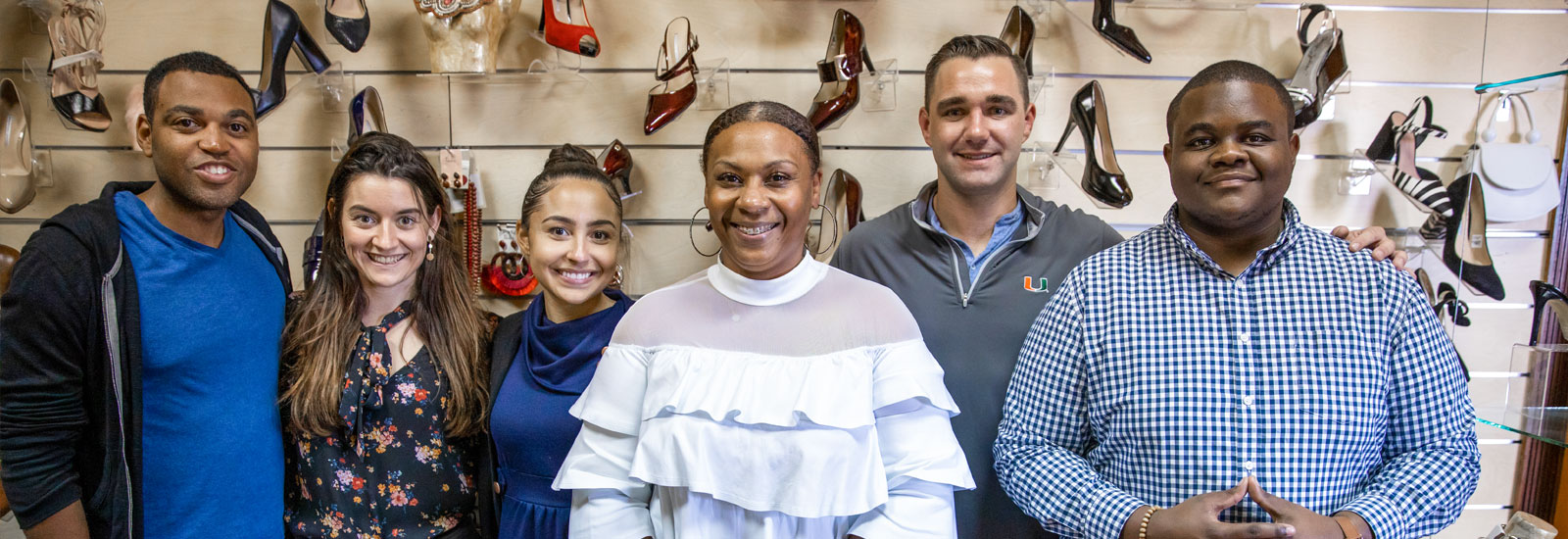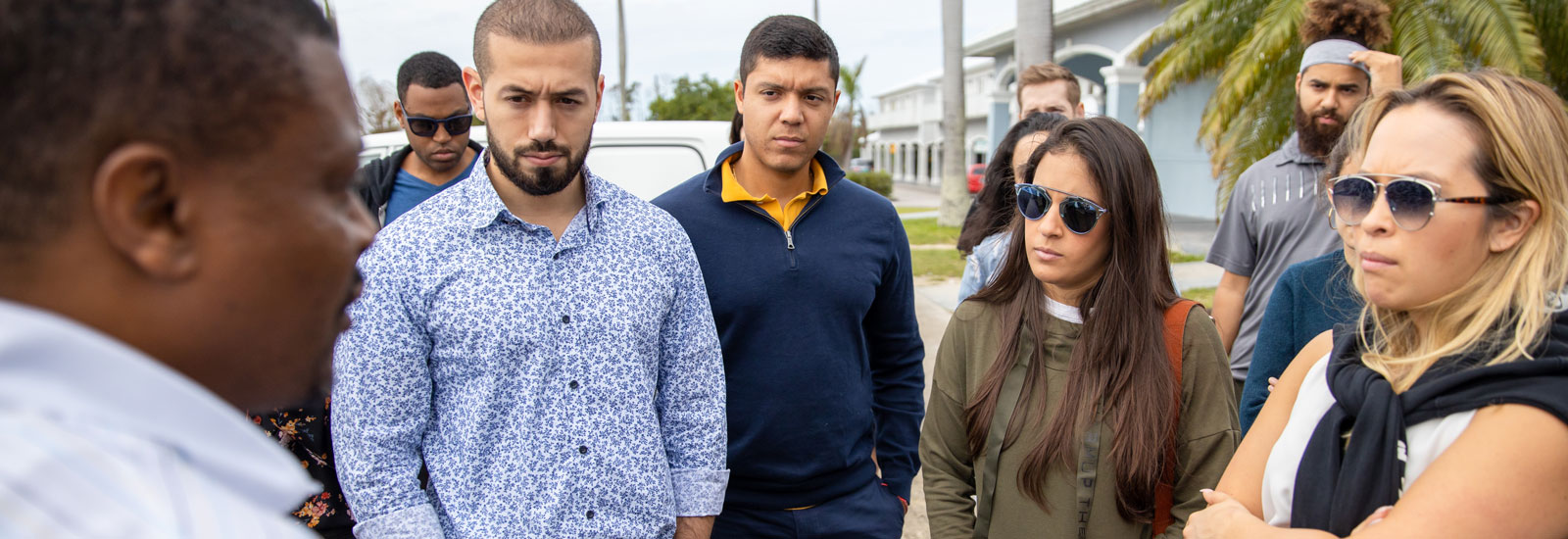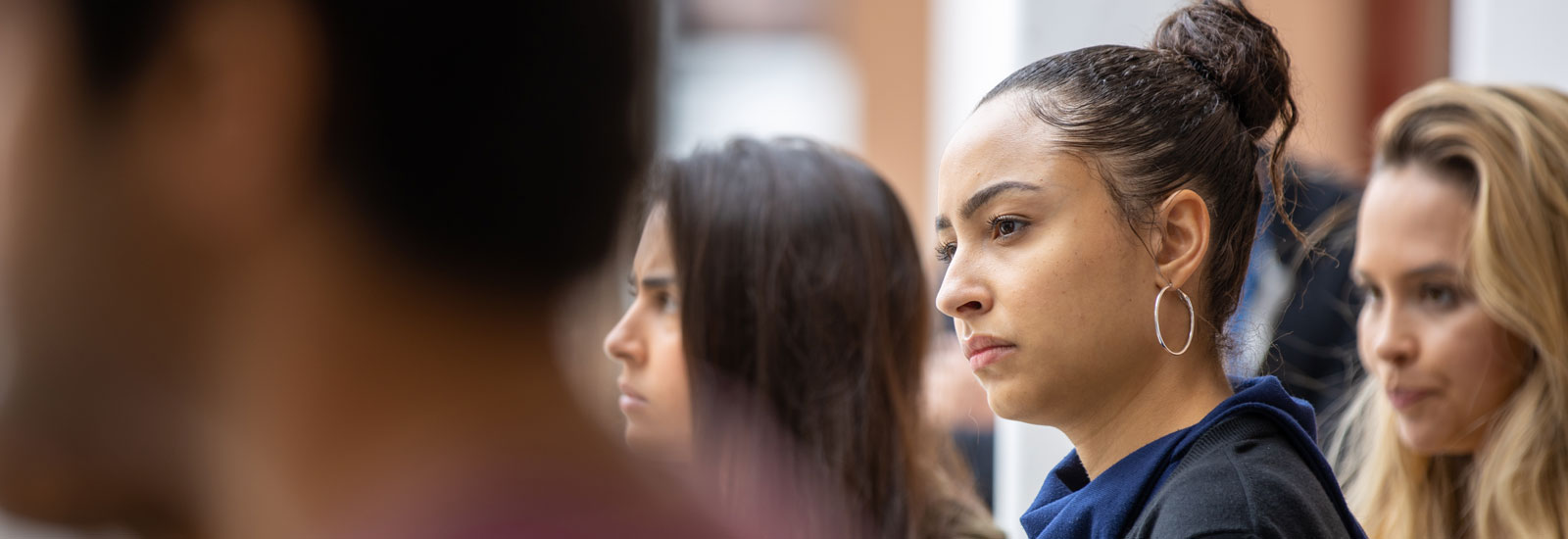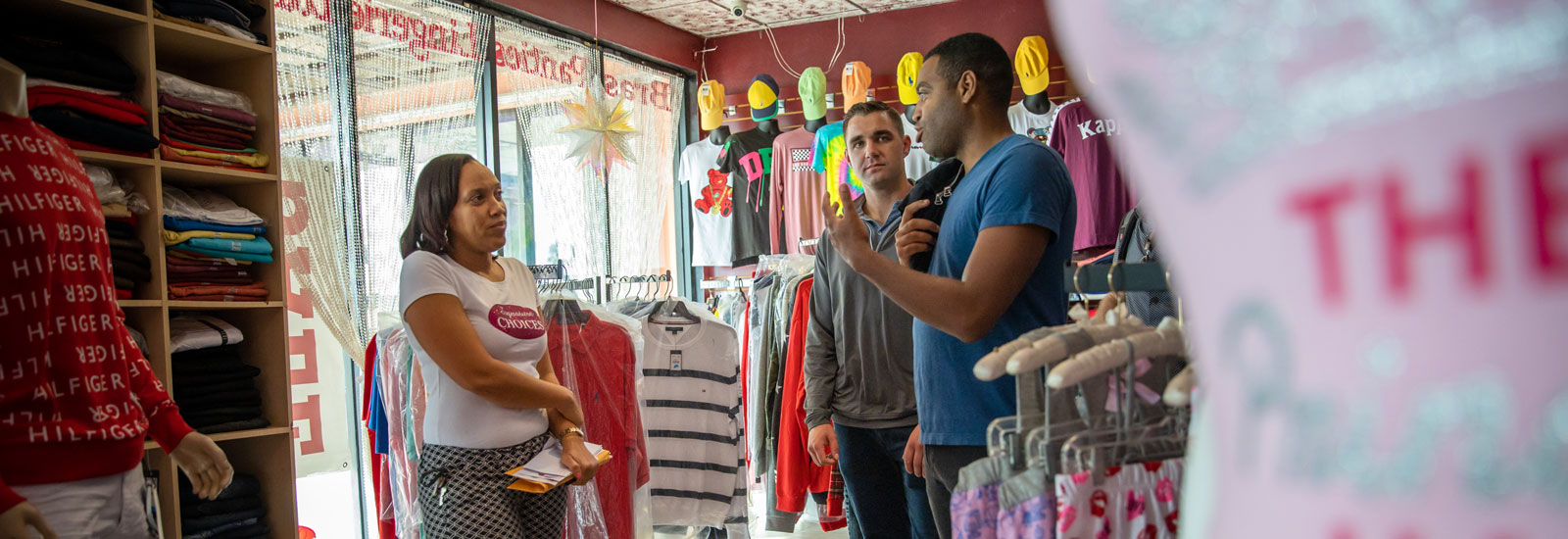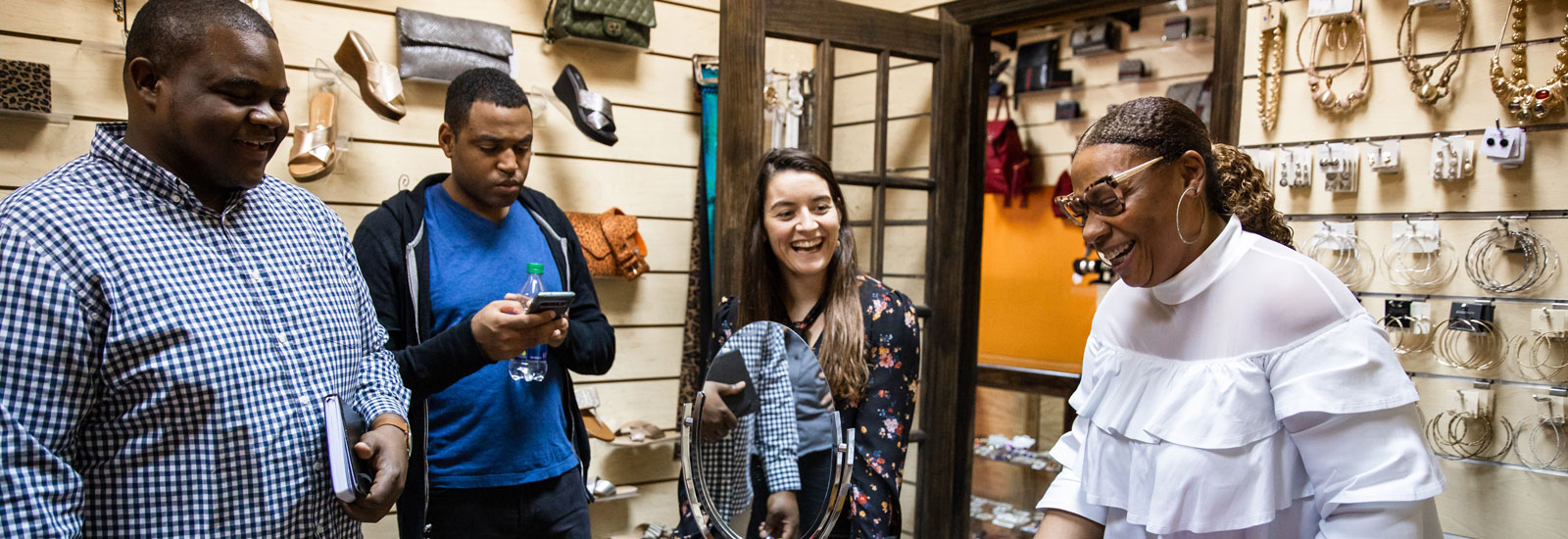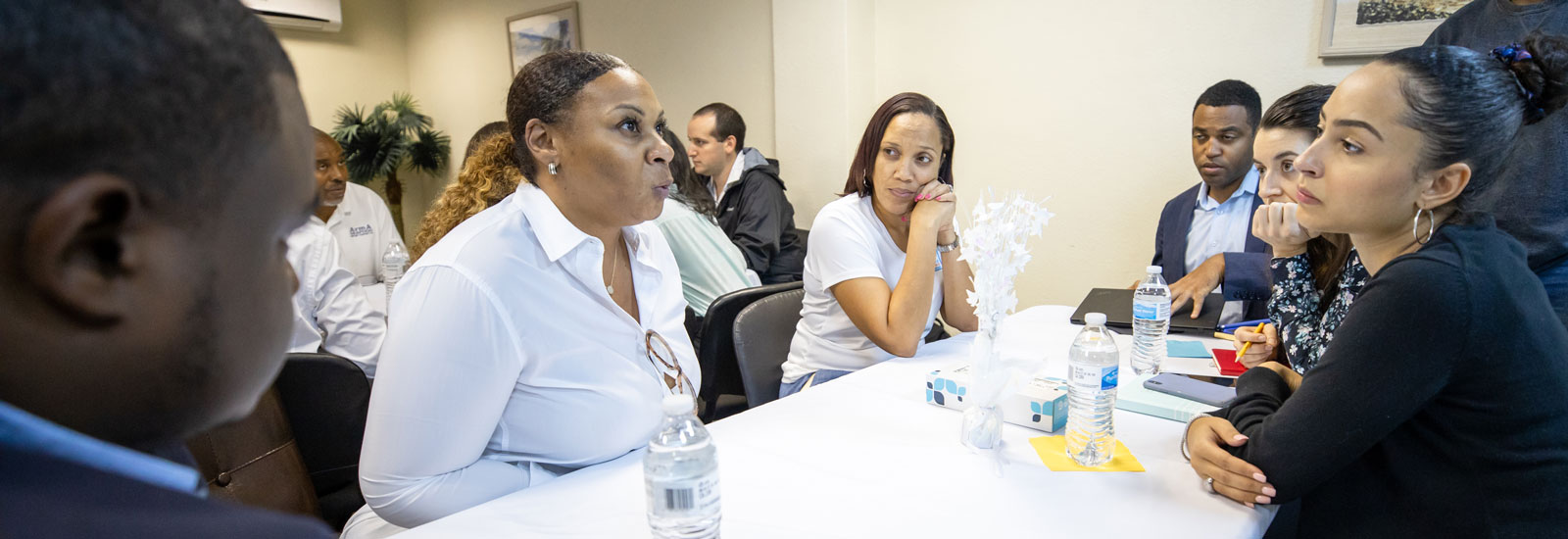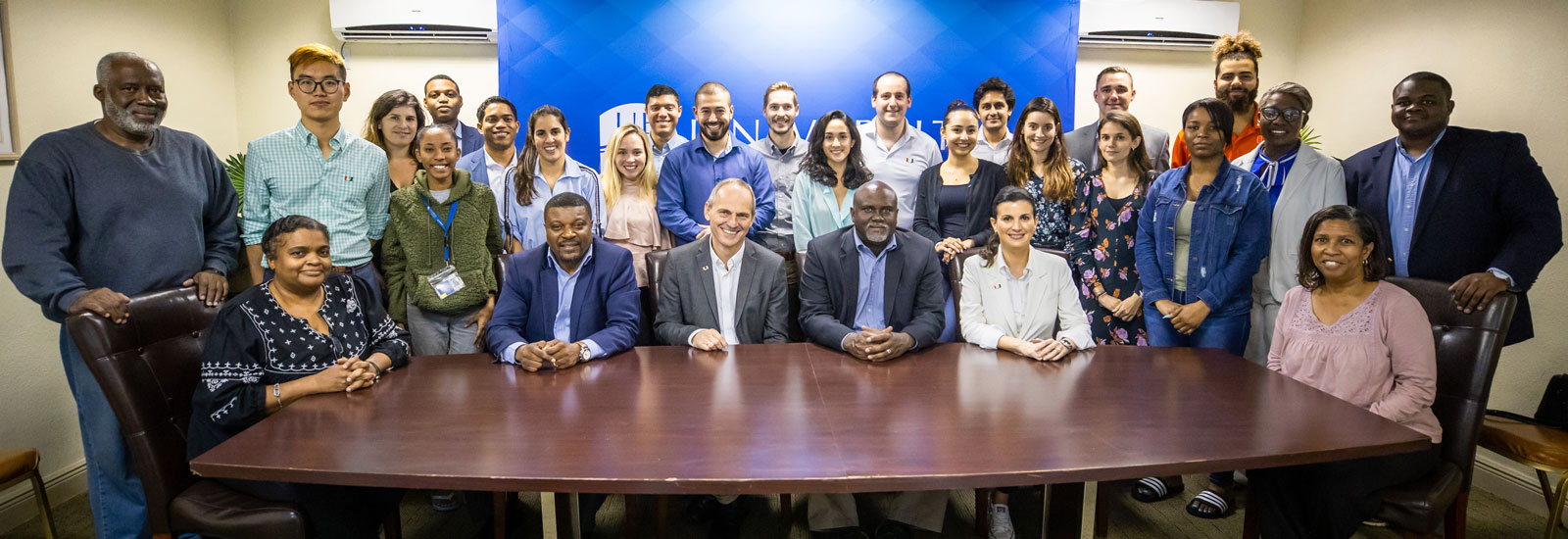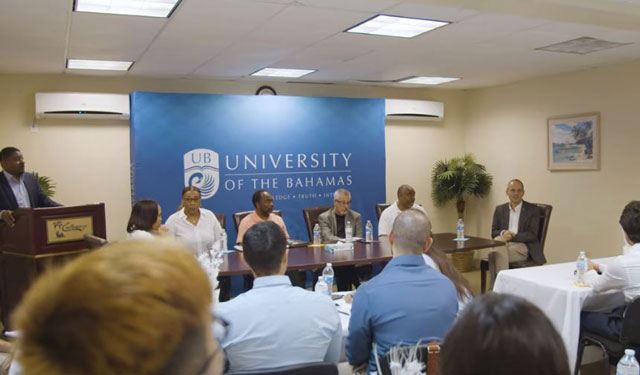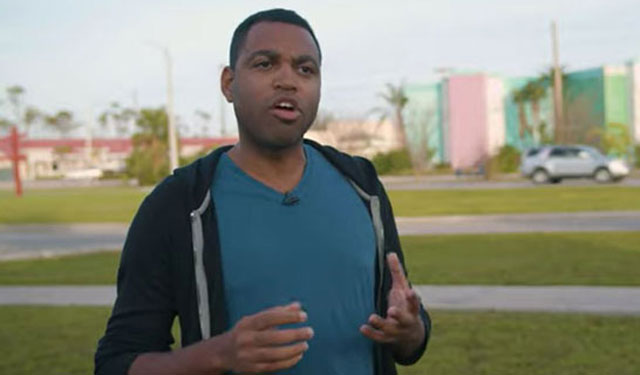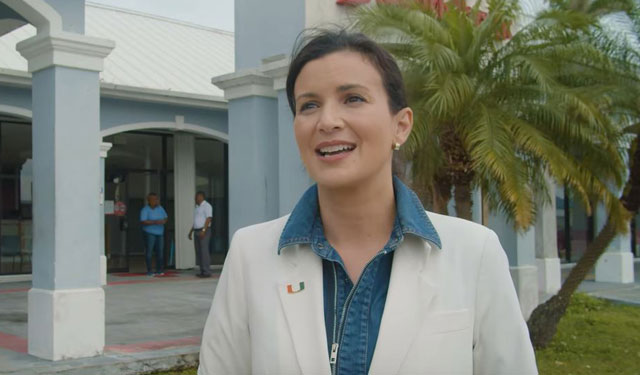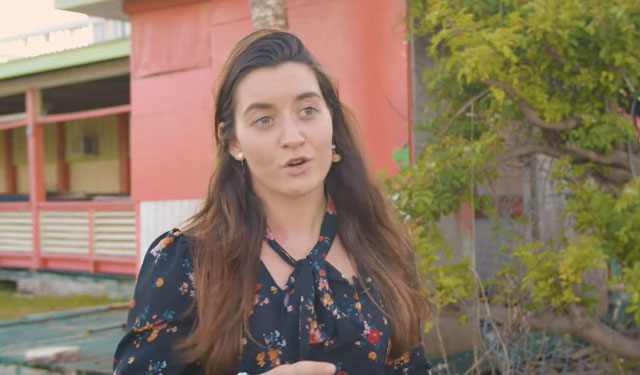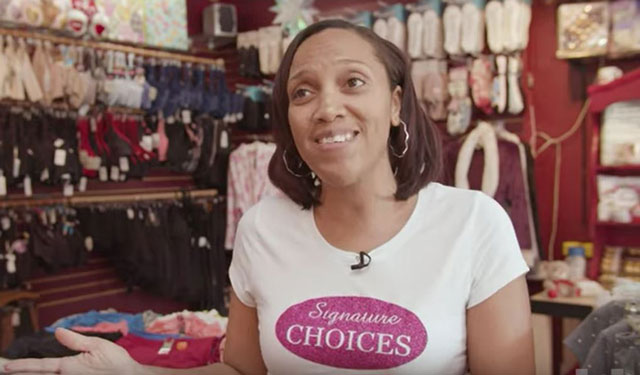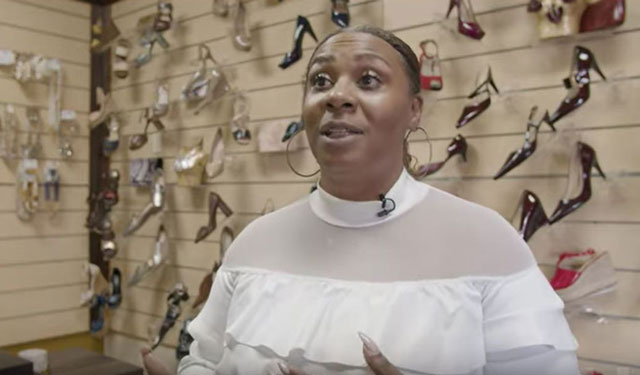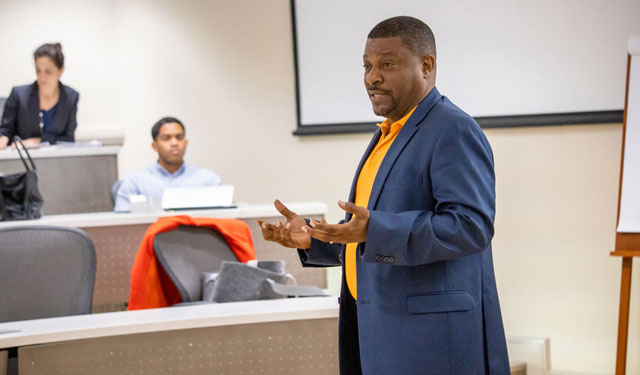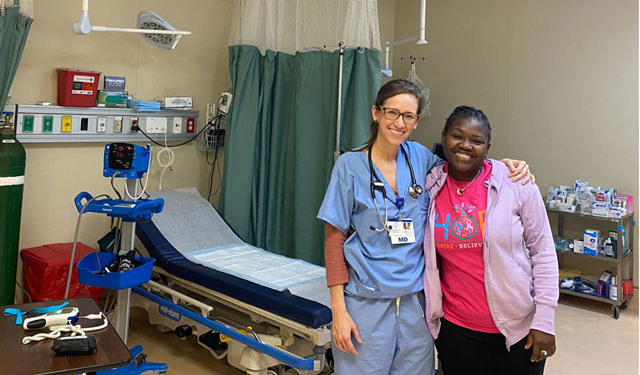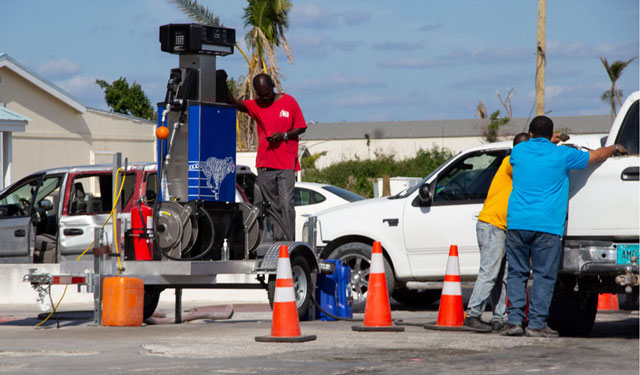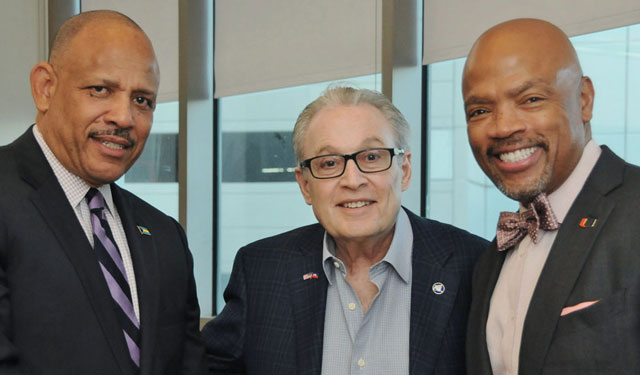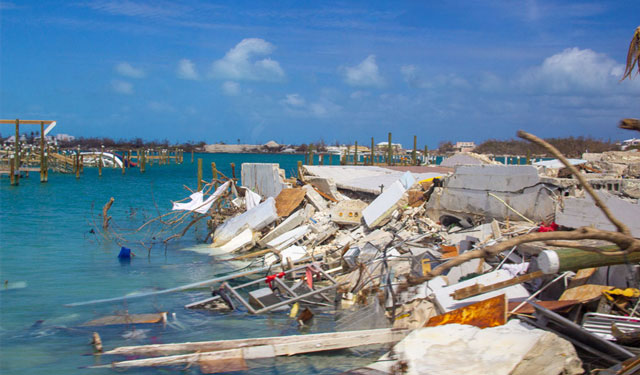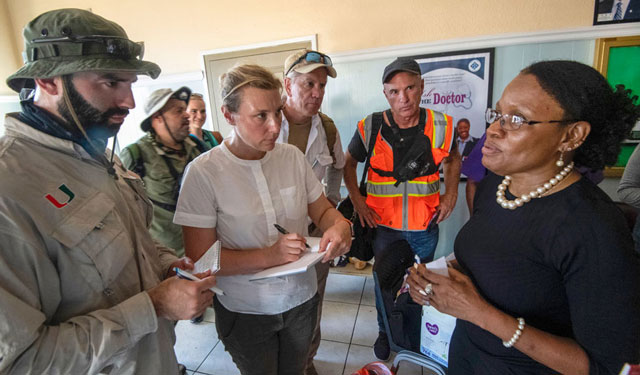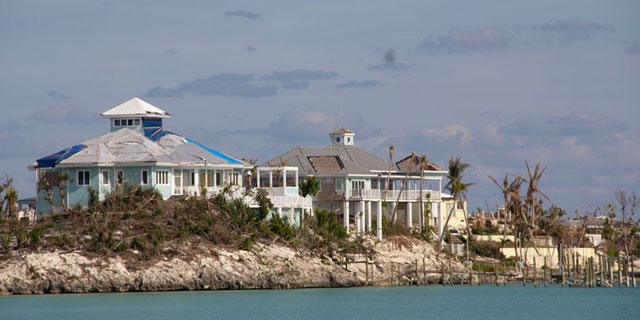Meetings with struggling Bahamian business owners provided students in the Miami Herbert Business School’s interdisciplinary action project class new ways to learn and lasting insights.
by Michael R. Malone
News@TheU
02-11-2020
FREEPORT, Bahamas—In conversations, professional consultants question their clients to know their “pain points”—a specific problem area that the customer is experiencing—to provide the best assistance.
For University of Miami students who traveled to Freeport this past weekend as part of Bahamas Consulting Project and who met their clients at their business sites, those pain points were viscerally and, in many cases, visually evident.
Toppled radio towers. Mangled machinery. Tens of thousands of dollars of merchandise lost. Data bases destroyed. Empty warehouses. Damaged structures. All evidence of the devastation caused by Hurricane Dorian, which pummeled the islands of Grand Bahama and Great Abaco for days last September.
The on-site visits, a component of the semester-long consulting project that aims to create strategies that will help local businesses recover and prepare for future natural disasters, provided valuable lessons for the students’ learning and for their future careers.
“We met with some fantastic owners who had rock-star businesses and then elements outside their control have made it really tough on them,” said Chris Williams, a second-year M.B.A. student who made the trip. “They did everything they could to prepare and everything they could to mitigate the damage, but this really showed me how precarious business can be.”
“We met with two brilliant women who are really struggling to get their businesses back up after the hurricane,” said Gaby Gallou, a second-year M.B.A. student. “They’re motivated and they’re going for it, working hard and willing to do whatever they can to get back on their feet.
“One thing that we can do to help them is to have them feel like they’re being listened to,” she added. “They need to feel that that they have that support in order to be more resilient for the future.”
The interdisciplinary cohort, comprised of 14 M.B.A. students as well as Miami Law students and doctoral students from the Rosenstiel School, touched down in Freeport Friday at noon. Zhivargo Laing, executive director of the Government Public Policy Institute at the University of The Bahamas and a former finance minister for the country, met the group and accompanied them to the hotel for a meeting with their selected clients—four businesses representative of the island nation’s principle industries: retail, fisheries, communications, and import/export canning.
Read: Students help fuel recovery and resilience for Bahamian businesses
View: Student work with Bahamian entrepreneurs
A few Bahamian students joined the meeting, though their Freeport campus was demolished in the hurricane, and the student body of nearly 1,000 students was displaced. More Bahamian students are expected to join the semester-long action project later.
Alex Niemeyer, who worked for 22 years with a global management firm before joining the University as a professor, teaches the action project class and accompanied the students.
“Normally, companies tend to be large with management teams. But most Bahamian companies are different—they’re small or medium-sized enterprises with a sole proprietor,” Niemeyer explained. “The students were quite shaken, in a positive way, first thinking of these companies as ‘is this a good business?’ or ‘should you do this?’, and then realizing that in many cases that these represent the hopes and dreams of their clients, and in some cases their entire livelihood.”
Saturday morning was spent touring the devastated areas—the gutted university campus, the Queen’s Highway Business District and the Downtown Business District, both banking and commerce areas that suffered extensive flooding and will require a long period of recovery. The bus tour provided firsthand understanding of the challenges the business owners face.
The student groups traveled separately to meet their respective clients at their business locations Saturday afternoon. They spent hours touring the facility, asking questions, and learning in detail about the business operations.
The retail group, which included Gaby Gallou, Denzell Turner, Stephanie Wehby, Chris Williams, and Phil Winn, all second-year business graduate students, met with two business owners: Alex Thompson, proprietor of Genesis Streetgear, a men’s clothing shop, and Signature Choices, Freeport’s premier lingerie and gift store, and Erica Hanna, “the shoe lady,” owner of Steppin Out shoe store.



